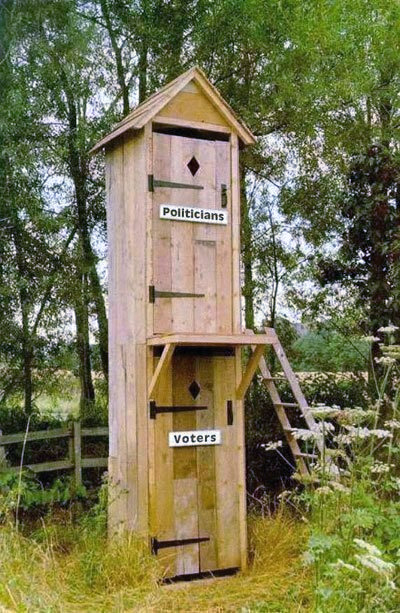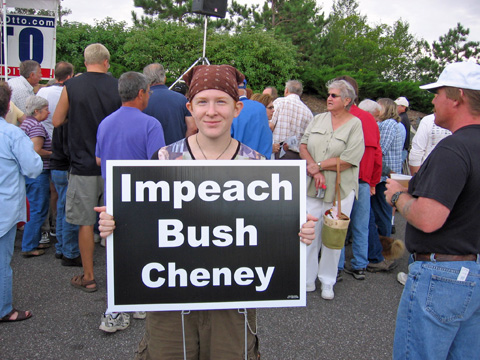Saving some Ford factories on table
If UAW compromises, plants could remain open.
Bryce G. Hoffman / The Detroit News
With contract talks between Ford Motor Co. and the United Auto Workers poised to enter the final stage, the automaker is prepared to scale back plans to close six plants already targeted for closure in exchange for more favorable contract terms, according to sources familiar with the situation.
Ford has said it will close 16 factories in the United States and Canada by 2012 as part of its North American restructuring plan. Six have already been idled, and plans to shutter four others have been announced. But the automaker has not named the other six publicly.
Now, Ford has shared its plant closing list with the UAW. And it has made it clear to the union that some of those plants could be saved if the automaker can get better contract terms than those negotiated with General Motors Corp. and Chrysler LLC.
Ford wants a lot -- more restrictions on its jobs bank program, a broader definition of "non-core" jobs that would allow more positions to be filled by lower-wage workers and more favorable funding terms for the union-run trust that is expected to assume responsibility for retiree health benefits.
But Ford is also prepared to give a lot in return, potentially sparing some of the factories targeted for closure. The closure list includes both assembly and parts plants.
Wayne Stamping and Assembly Plant is included, as is the Ohio Assembly Plant in Avon Lake, but sources would not disclose the entire roster to The Detroit News. According to analysts, other plants on the bubble include the Chicago Assembly Plant, Michigan Truck Plant in Wayne and Ford's assembly plant in St. Thomas, Ontario.
The fate of these and other facilities could be decided at the bargaining table as early as this week in Dearborn. Many could come off the list if the UAW gives Ford what it wants. As The News first reported last week, Ford also is prepared to offer the union a new bonus plan.
"The union has got to give them some flexibility," said Ron Harbour, president of Harbour Consulting in Troy. "I think they will."
Ford spokeswoman Marcey Evans declined to comment, saying the negotiations are private. UAW spokesman Roger Kerson also refused to discuss the plant list.
Factories on the bubble
Wayne Stamping and Assembly Plant might seem secure, given that it just began production of a redesigned Ford Focus. After all, the Focus is the only small car in the company's domestic lineup.
But the new Focus is only an interim vehicle. It is designed to bridge the gap between the last model and an entirely new version that will put the U.S. Focus on the same platform as its European counterpart, which is currently an entirely different model. The same architecture also will be shared with the Mazda 3.
Analyst Erich Merkle of IRN Inc. in Grand Rapids, who expects the new vehicle to debut in 2010, said it is unlikely to be produced at Wayne.
"The fact that they were reluctant to make a significant investment in Wayne says something," he said. "Purely from a business perspective, I think it would make more sense to take it outside the United States."
Moreover, workers at Wayne have refused to ratify a local competitive operating agreement similar to those already approved at most of Ford's U.S. plants. Those plant-specific agreements, which cover issues such as work rules, are saving Ford $800 million a year.
The only other plant that has refused to ratify a competitive operating agreement is Chicago Assembly. It produces the Taurus and Taurus X crossover, as well as the Mercury Sable. Ford has made major investments in that facility to accommodate these products, as have suppliers who have built their own plants in a nearby industrial park. But that may not be enough to save the factory if workers remain opposed to a more flexible agreement.
"If they don't come to the party, long term, they could be on the list," Harbour said.
Workers at the Ohio Assembly Plant did ratify a competitive operating agreement, but a source said the plant is still uncompetitive.
Plants without products
Though not directly part of the contract negotiations between the UAW and Ford, Ontario's St. Thomas Assembly Plant is almost certainly one of those marked for closure.
The aging factory has seen little significant investment in recent years, and the cars it produces -- the Ford Crown Victoria, Mercury Grand Marquis and Lincoln Town Car -- do not have much of a future.
Neither do the Ford Explorers, Sport Tracs and Mercury Mountaineers produced at the Louisville Assembly Plant, at least not in their current form. Yet Louisville is the home plant of UAW President Ron Gettelfinger, and sources say the company does not want to embarrass him by shutting it down.
Analysts say Ford's Michigan Truck Plant, also in Wayne, is in jeopardy. It builds the gas-guzzling Ford Expedition and Lincoln Navigator, two products whose sales have slumped dramatically in recent years.
"Those are vehicles you could probably build in one of the pickup plants," Harbour said, though Ford officials privately say the automaker would prefer to keep Michigan Truck open. "They know that they'll never sell 300,000 of those a year again."
Ford's other Michigan factories -- the Auto Alliance plant in Flat Rock and Dearborn Truck at the Rouge complex -- are probably safe.
Ford was producing F-150 pickups at three factories in the United States. However, as demand for these bread-and-butter vehicles withered in the face of rising fuel prices and a contracting construction market, the automaker decided to idle one of those facilities -- Norfolk Assembly Plant in Virginia -- and divide all F-150 production between Dearborn and the Kansas City Assembly Plant in Claycomo, Mo.
The Kansas City plant is also unlikely to be on the list.
Few product promises seen
With so many factories still slated to close, it would be hard for Ford to make the sort of far-reaching product commitments that were key to securing General Motors Corp.'s agreement with the UAW last month.
The tentative agreement reached between the union and Chrysler LLC on Oct. 10 contained far more modest commitments on the part of the company and has proved a hard sell at several key factories.
Ford's situation is further complicated by the fact that it is still trying to formulate a global production plan. CEO Alan Mulally wants to streamline the company's product portfolio so more cars and trucks are produced on fewer platforms worldwide.
The automaker already has constructed flexible plants in places like Brazil that could feed the U.S. market in the future, making its domestic factories less vital to future product plans.
"GM was in a better position than either Chrysler or Ford to make product commitments," said Michael Robinet, vice president of global vehicle forecasts at CSM Worldwide in Northville. "The more flexibility you build into your global production facilities, the more flexibility you have when you're sourcing products."
Keeping some of the Ford facilities open could go a long way toward convincing those UAW workers to vote for other contract changes the automaker needs to return its struggling U.S. operations to profitability.
You can reach Bryce Hoffman at (313) 222-2443 or bhoffman@detnews.com



